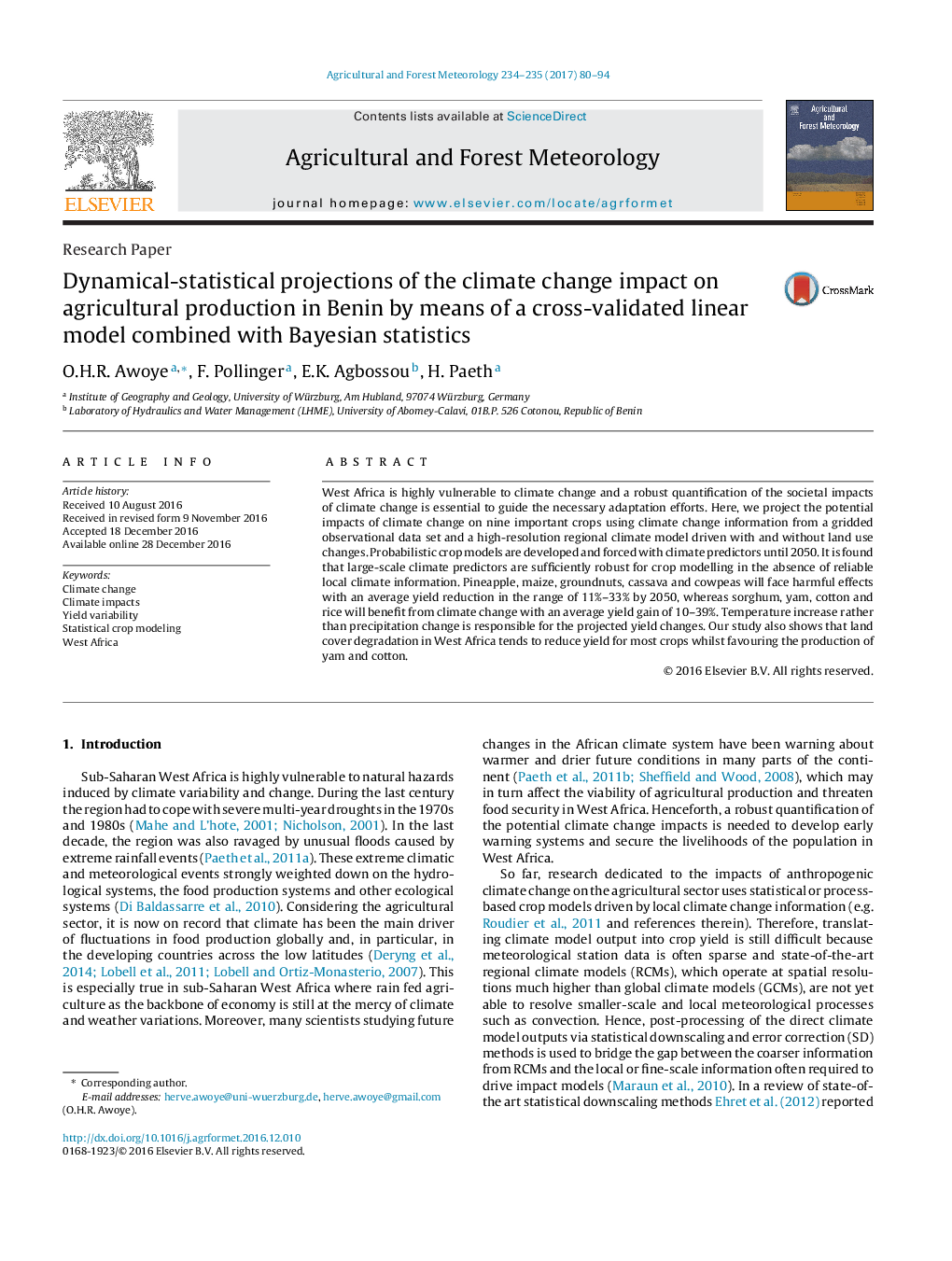| کد مقاله | کد نشریه | سال انتشار | مقاله انگلیسی | نسخه تمام متن |
|---|---|---|---|---|
| 6457972 | 1420863 | 2017 | 15 صفحه PDF | دانلود رایگان |
- Probabilistic crop models are developed to project climate change impact on crop yield in West Africa.
- Large-scale climate predictors are sufficiently robust for crop modelling in the absence of reliable local climate information.
- In times of future climate change winners and losers in the agricultural sector are identified.
- Temperature increase rather than precipitation change is more responsible of the projected crop yield changes.
- Land cover degradation in West Africa reduces yield for most crops whilst favouring yam and cotton.
West Africa is highly vulnerable to climate change and a robust quantification of the societal impacts of climate change is essential to guide the necessary adaptation efforts. Here, we project the potential impacts of climate change on nine important crops using climate change information from a gridded observational data set and a high-resolution regional climate model driven with and without land use changes. Probabilistic crop models are developed and forced with climate predictors until 2050. It is found that large-scale climate predictors are sufficiently robust for crop modelling in the absence of reliable local climate information. Pineapple, maize, groundnuts, cassava and cowpeas will face harmful effects with an average yield reduction in the range of 11%-33% by 2050, whereas sorghum, yam, cotton and rice will benefit from climate change with an average yield gain of 10-39%. Temperature increase rather than precipitation change is responsible for the projected yield changes. Our study also shows that land cover degradation in West Africa tends to reduce yield for most crops whilst favouring the production of yam and cotton.
Journal: Agricultural and Forest Meteorology - Volumes 234â235, 15 March 2017, Pages 80-94
